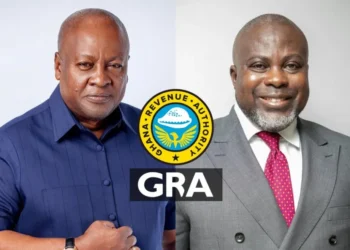The Government of Ghana has once again failed to meet its treasury bills target, deepening concerns about investor appetite for government securities.
According to the Bank of Ghana’s latest auction results, the state was seeking to raise GH¢6.7 billion to support its short-term financing needs but only managed to secure GH¢3.2 billion in bids—representing an undersubscription of nearly 49%.
This marks the fourth consecutive week of missed targets, signaling persistent challenges for the government in raising funds through treasury auctions.
Market analysts point to a growing trend of investors shifting from treasury bills towards other high-yielding financial instruments, particularly fixed deposits. The undersubscription indicates waning confidence in government securities, with investors seemingly demanding better returns for their capital.
Interestingly, this auction’s outcome comes despite a fall in interest rates across all maturities. The yields on the 91-day, 182-day, and 364-day bills all dipped slightly, making treasury bills less attractive compared to alternative investment options.
The auction data shows a clear preference for shorter-dated instruments, as the 91-day bill dominated subscriptions. Out of the GH¢3.2 billion tendered in total, GH¢2.05 billion—representing about 58% of all bids—went into the 91-day note. From this, GH¢2.01 billion was accepted.
The 182-day bill recorded GH¢1.14 billion in tenders, with GH¢1.12 billion accepted, while the longer-tenure 364-day bill struggled, attracting only GH¢321.06 million in bids. Of this, just GH¢194.5 million was accepted, highlighting investors’ reluctance to lock up funds for extended periods amid economic uncertainty.
Interest Rates Edge Lower
Despite the undersubscription, yields declined slightly across the curve. The 91-day bill fell by 35 basis points to 10.41%, down from 10.76% in the previous week. The 182-day bill also eased marginally to 12.37% from 12.38%, while the 364-day bill dropped to 12.99% from 13.00%.
This drop in rates might suggest the government’s strategy to ease its cost of borrowing. However, the trade-off is apparent, as lower yields appear to be discouraging investors, resulting in smaller inflows than expected.
Financial market watchers warn that the continued undersubscription of government securities could complicate fiscal planning. With revenue mobilization already under pressure, the government relies heavily on short-term borrowing through treasury auctions to plug budget gaps.
“The undersubscription points to tightening liquidity in the financial system,” said one Accra-based market expert. “Investors are simply chasing higher returns elsewhere, and the government will have to rethink its borrowing strategy if this trend persists.”
Others believe that the reliance on the 91-day bill reflects a cautious investor sentiment. The short-term security provides a quicker exit option for investors, especially at a time when uncertainty around inflation, exchange rate fluctuations, and fiscal discipline remains high.
The government’s inability to raise the full target could create cash flow constraints, potentially delaying planned expenditures or pushing the state to seek more costly financing alternatives. Furthermore, persistent undersubscription risks sending negative signals to international markets about domestic investor confidence in Ghana’s fiscal position.
At the same time, the decline in yields may reduce the government’s debt servicing costs in the short term. Yet, without sufficient uptake, the intended relief on borrowing could prove inadequate.
Analysts suggest that the government may need to balance its strategy between offering competitive rates to attract investors and maintaining manageable borrowing costs. The trend also underlines the importance of diversifying financing sources, including strengthening tax mobilization and exploring concessional loans.
READ ALSO: Dangote Refinery Sources Ghanaian Crude as Operations Scale Up























